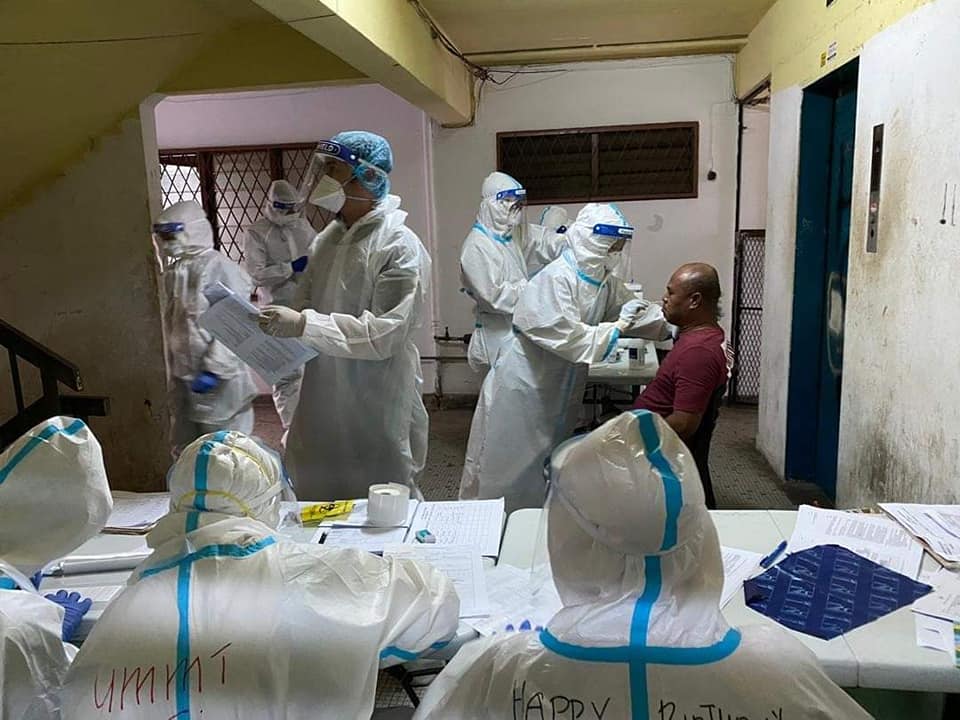KUALA LUMPUR, July 8 — Malaysia’s public health system with established surveillance allowed authorities to take on the coronavirus pandemic while realising their resource limitations, an official said.
Dr Awatef Amer Nordin from the Institute for Health Systems Research (IHSR) at the Ministry of Health (MOH) told a webinar hosted recently by MOH that the Covid-19 pandemic was a massive event for the country, where the challenges were taken head on by health authorities with a “half glass full” approach.
This, she said, contributed to Malaysia’s success in flattening the Covid-19 epidemiological curve.
“I think I would prefer to use the analogy of a glass half full or half empty, meaning that of course when we look at the glass as half full, we have a certain established system like a very strong public health system, established surveillance system, et cetera.
“But when we try to deal with a pandemic or a massive event such as this, whatever that we know becomes challenging because of the burden or the tidal wave.
“So, what happened was looking at the glass as half full, realising that we are limited in terms of human resources and in terms of medical equipment supplies, et cetera, but optimising what we have, so certain initiatives were taken to overcome challenges,” said Dr Awatef.
When asked about what role primary health care played in this pandemic, Dr Awatef proudly shared that the primary health care sector in Malaysia was mobilised to its fullest potential in the country’s Covid-19 response.
“With regards to the primary care involvement in Malaysia, all of the care providers were mobilised, regardless of whether they’re in hospital care or in primary care. (They are) involved in certain programmes such as, even in terms of creating guidelines, involved in mobilisation or human resources, planning for procurement of supplies.
“Everyone has a say in what goes on, but in primary care itself, they are also involved in the contact tracing, testing of the person under investigation at the clinic itself,” she said.
She further added that coverage of clinics is also an important component as every community within the nation needs its own primary care coverage beyond Covid-19.
“So, an important component is the coverage of clinics, because we have a distributive clinic that covers the areas of Malaysia and enables us to reach the communities that we need to actually address.
“Furthermore, not just activities for Covid-19 in primary care, there is prioritisation in the Ministry’s lining of, yes, we address activities for Covid-19, but we also look at the other essential services.
“So, we did not leave behind maternal and child care services or the NCD (non-communicable disease) services. That continues on despite everyone chasing after Covid-19. A lot of things were happening simultaneously even in the primary care level,” Dr Awatef explained.
Prof Martin McKee from the London School of Hygiene and Tropical Medicine in the United Kingdom, in the same webinar, pointed out that the role of academics in politics is a tricky one, given the complexity of attempting to meld the two.
“In this country (UK), the prime minister has frequently appeared at these press conferences flanked by the chief scientific advisor and the chief medical officer. And at the most recent (one), it was very clear that both of the advisors were very uncomfortable with the decisions that were being announced.
“There has been a concern that by having them present, them being there giving legitimacy to political decisions. I think their body language and their comments have made it clear that they do have concerns about this.
“That’s a very fine line to tread. I’m firmly in the camp of those who believe that academics have the responsibility to speak truth to power,” said McKee.
He further provided an example of the typhus epidemic is Silesia back in 1856 as an analogy to the modern situation that the world faces in light of the Covid-19 pandemic: “In 1856, a pathologist was asked to investigate an epidemic of typhus in Silesia in a part of Poland at the time. Of course, he looked at the biologic factors that were involved, but typhus was a disease of the poor and he was very clear that the way in which you would tackle that was by overturning the power of the aristocracy, and also the church which kept the aristocracy in power.
“I think we do have a role to play, but it’s really easy for me to say that in the United Kingdom, because I do have the protections of law. Well, that doesn’t mean that the politicians cannot attack you, but I don’t think that any of us is at risk of their lives, but that is not the case in many other countries, unfortunately,” McKee added.
“It can be very dangerous,” he said, and pointed out a case in Malta where an anti-corruption journalist was assassinated after her work uncovered alleged corruption in the Maltese government.
“We have had a number of examples, so I do think we need to be very cautious about what we say in some places particularly, where you have authoritarian leaders that are not reluctant, that are willing to encourage the use of lethal force against those people who disagree with them. I think the countries here know which ones I’m talking about,” he cautioned.








